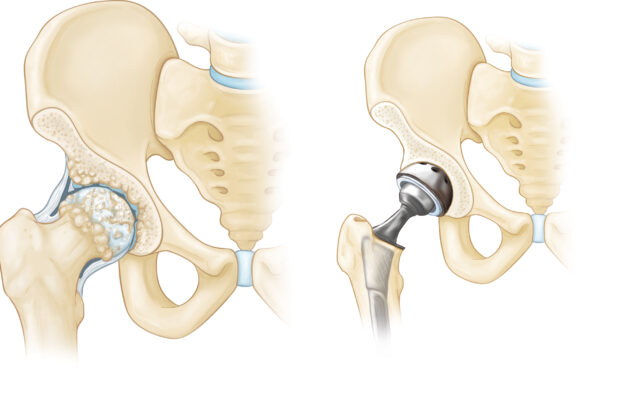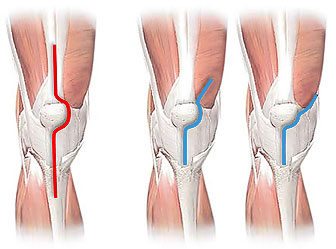Medical science has come a long way in the past few years. Things which seemed impossible once have now become possible with the use of latest technology and ultra-modern equipment. These latest additions in science and technology have made it possible for the doctors as well as surgeons to perform many procedures with great precision and accuracy. Total Hip Replacement Surgery is one of them.
There are many people across the world who suffer from hip problems. They have painful and stiff hip joints that make it very difficult for them to carry on with their daily activities. Their motion is also restricted as they have a lot of pain in hip joint. But now with the help of Total Hip Replacement Surgery, you can get rid of your pain and live an improved quality of life. Hip joint deteriorates over the passage of time due to arthritis. When you go to your doctor first, he will give you medication, suggest for exercise, physical therapy or other aids to get relief from hip pain. In case, nothing seems to work, then Total Hip Replacement Surgery remains an ultimate option.

In this surgery, the surgeon will replace the hip joint that is damaged by arthritis with an artificial joint that is made of metal, ceramic of plastic. This surgery can be done by either traditional method or laparoscopic method depending on your health condition. After the surgery when you recover, you will be able to use your hip joint normally without any pain and also do your regular activities with ease.
There are some risks and complications associated with Total Hip Replacement Surgery, namely:
- Infection can occur in your wound or deep in the artificial joint soon after the surgery in the hospital or after you go home. If infection is less, it can be treated with antibiotics. But in case of major infection, another surgery may be done to remove prosthesis first and then cure the infection.
- Blood clots can form which if travel to your lungs or other parts can be life-threatening. Your doctor will give you blood-thinning medicines and encourage you to move early to avoid them.
- Some patients may have legs of unequal length after hip replacement surgery. This may happen in order to maximise the stability and biomechanics of hip. Shoe-lift may help you.
- Dislocation of new hip joint can occur after few months of surgery. You might need another surgery to correct it.
- Over the years, artificial hip joint may wear away and become loose. You may need revision surgery.
- There may be other complication too like injury caused to nerves and blood vessels, bleeding may occur along with fracture.



